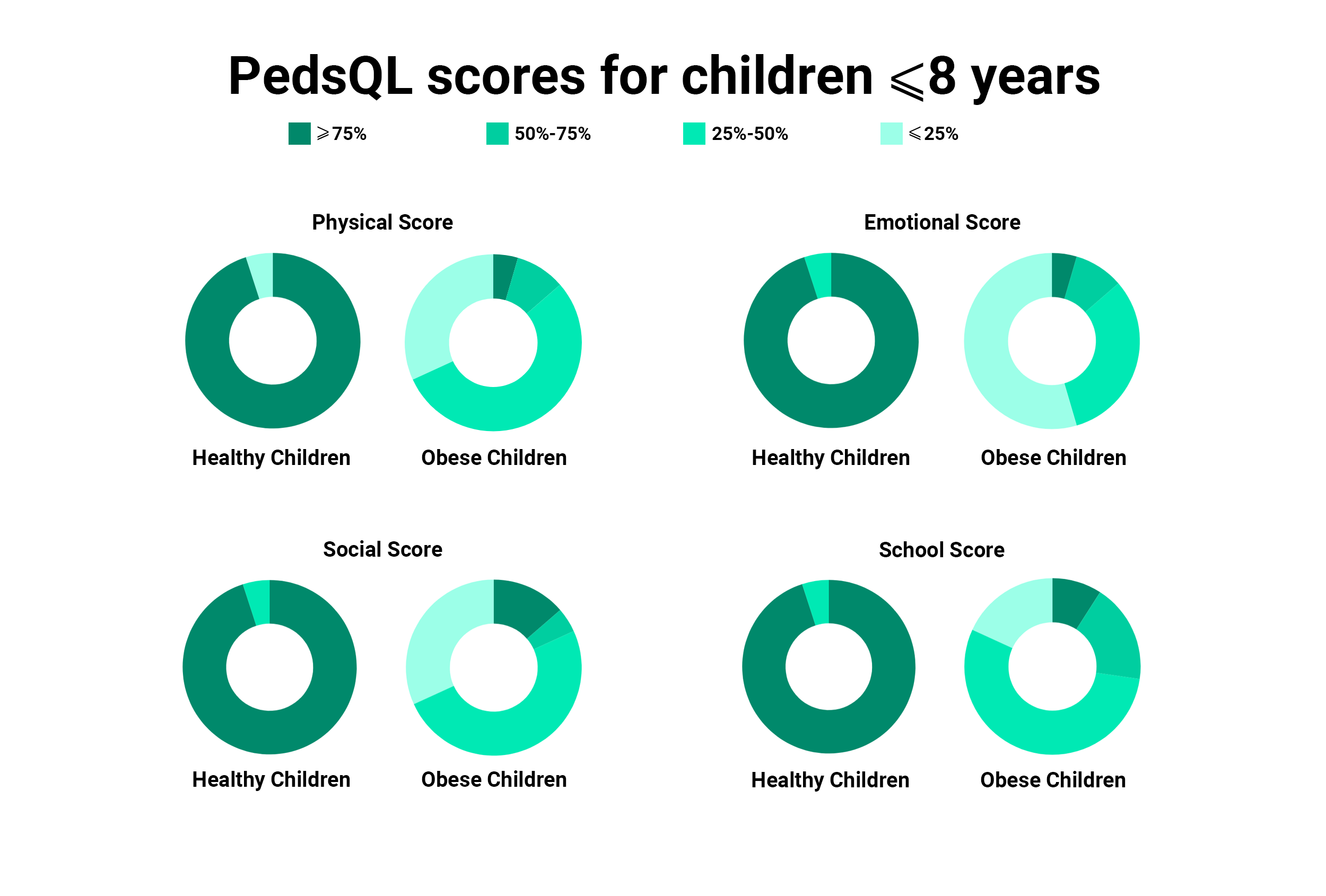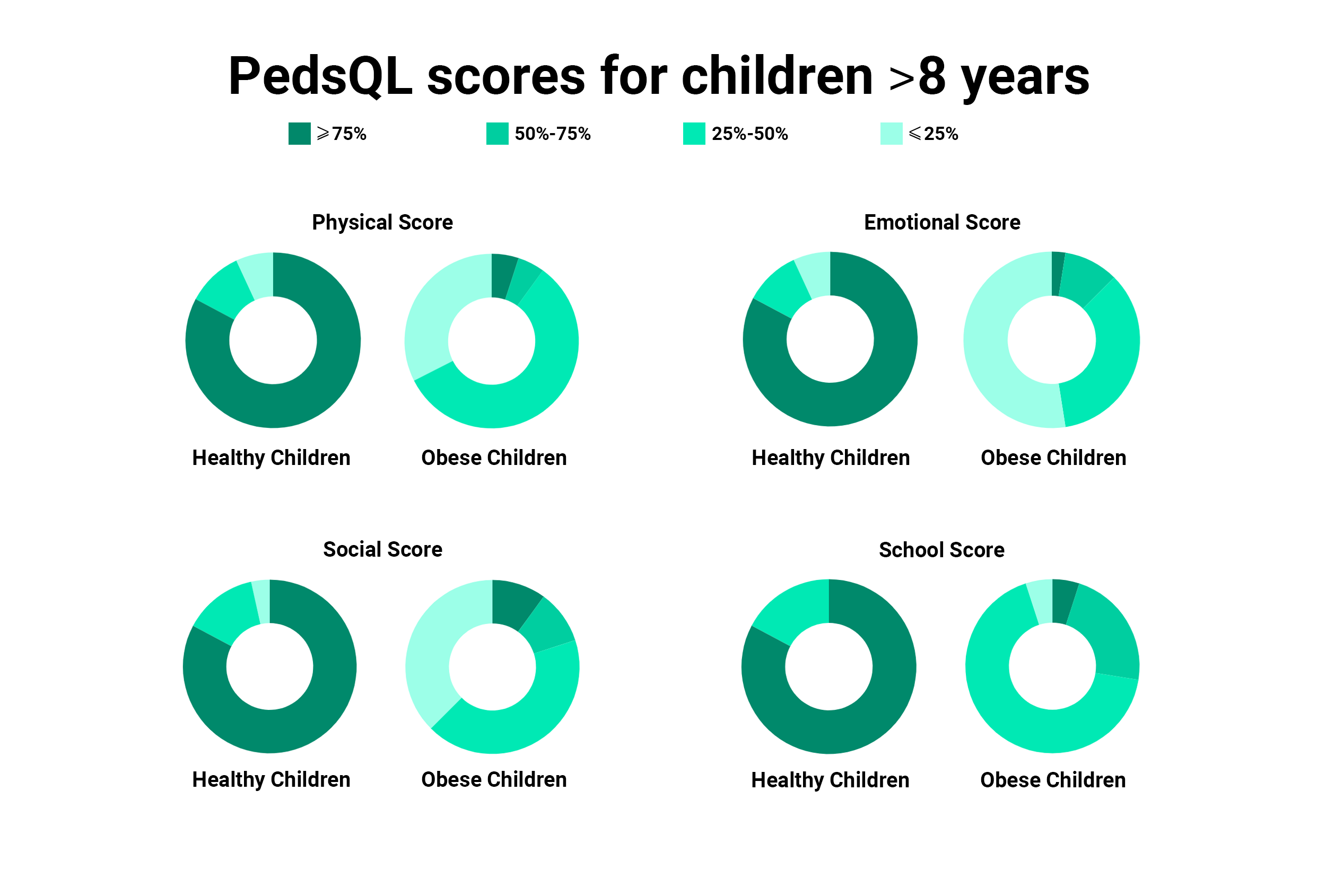How to Help Your Child Lose Weight

If your son or daughter is overweight there’s a number of things you can do to help them lose weight and become healthier.
We’ve compiled a list of 7 simple steps that will help to make a difference, many of which you can start using today!
Obesity among children is on the rise, in fact it’s estimated that 124 million children across the world are now obese.
This is dangerous because obesity is linked to a number of health complications, including diabetes, heart disease and asthma. Obese children can also have a lower quality of life.
This journal article found that obese children performed worse than healthy children across all 4 areas tested: social skills, emotional well-being, physical functionality and performance at school.
We’ve summarised the results in the graphs below:


The most worrying result is that over 30% of the overweight children who were surveyed had a bad social score. This was in both age ranges. In comparison, 0% of the children with a healthy BMI under the 8 had a bad social score and only 3.4% of children over 8 received this rating.
Furthermore, obese children have increased risk of being obese as adults, which can lead to a number of health issues.
What You Can Do to Help Your Child Lose Weight
Now that we’ve briefly summarised the issues with childhood obesity, we will begin discussing the ways you can tackle it.
Be a good role model
The best advice we can give to you is to lead by example.
Your child probably won’t respond well if they feel like they’re being punished because of their weight. To combat this, you can encourage the whole family to take part in the weightloss journey.
Instead of letting your children watch TV or sit around on their tablets, go for a family walk or bike ride. You could even go swimming together or play group sports like football or badminton at the park.
When it comes to meal times, make sure that you’re all eating the same healthy portions.
Give them Child-Sized Portions
Children are growing and often eat more food to account for their high metabolism. But it’s important to try to avoid feeding them oversized portions.
Eating too many calories will result in weight gain, especially if children are not exercising enough to burn them off.
To improve portion sizes at meals, try giving your children smaller servings and let them ask for more food if they’re still hungry. Continuously giving adult portions will result in overfeeding.
Eat Healthy Meals
Children and adults should both aim to eat 5 portions of fruit and vegetables every day for essential vitamins and minerals.
This may sound difficult but includes fresh, tinned, frozen and dried varieties. This video from Sorted Food contains some great frozen food hacks to help you incorporate them into your daily meals.
Alternatively smoothies, sauces or soups are another fantastic way to up the fruit and vegetables content of meals.
In addition to preparing healthy food, you should also remove most, if not all, of the junk food from the house. Sugary food and high fat-foods, such as sweets, cakes, soda and biscuits are high in calories.
Offer your children healthier snacks like carrot sticks, cucumber rounds and try to switch soda and other soft drinks for water. Other small changes you can try is diluting juice with water to make it less unhealthy if they’re not responding to just water.
Establishing an eating schedule will help children to understand the difference between hunger and boredom. It will also prevent casual snacking while watching TV or playing games.
If you don’t prioritise breakfast then now is a great time to start. Children who eat breakfast will be full for longer and less likely to snack during the day.
Limiting takeaways is also key. It may be easier to order a take out or go out for a meal than eating at home but it’s not usually healthy. If you find yourself short of time after work, try using a slow cooker to cook delicious, healthy meals during the day.
Finally, involving children in the cooking process can teach them about eating healthier and make them excited about meal times.
Encourage Exercise
It’s recommended that children get at least 60 minutes of exercise every day. This does not have to be done all at once but can be split up into multiple activities throughout the day.
Easy ways to do this are playing a ball game or tag in the garden for 10 minutes. Doing a 15 minute yoga or HIIT session is another great option. Even just having a dance along to their favourite songs can be a fun way to burn some calories.
Alternatively, walking or cycling to school instead of taking the car or bus is a great way to get active earlier in the day if you find yourself short of time in the evening.
The most important thing to remember is that your child does not need to do more exercise because they are overweight. They will naturally burn more calories because of their extra body weight for doing the same activity.
On weekends taking the family to the pool for an hour of swimming or doing a family hike together can be a great way to exercise as a family.
Reduce Their Screen Time
In addition to encouraging more exercise, you should also try to reduce the amount of time your child is spending in front of a screen.
Long periods of screen time also mean long periods of sitting or lying around, which increases the likelihood of them putting on weight.
While they may enjoy watching TV or playing video games, try encouraging them to go out in the garden or do something more active with you.
Experts advise that children should spend no more than 2 hours of screen time a day, which includes watching TV, playing games, scrolling on social media and going on the computer.
Improve Their Sleep Schedule
Lack of sleep can actually cause weight gain, as well as affecting mood and behaviour. That’s why it’s important to promote a healthy sleep schedule.
Studies also show that people who are sleep deprived are more likely to crave junk food.
Try removing electronic devices from their bedroom at night to ensure that children are actually going to sleep.
Provide Support
Talking to your child is a great way to help them as well.
If there’s a sport or activity they want to try then now is the time to encourage it. There may also be problems at school that they’ve not mentioned previously which could be contributing to their weight gain.
Speaking to a GP is another option at your disposal. They can provide meal plans and suggestions to help you help your child.
Further Reading
If you want to keep an eye on your child’s weight (or your own), we offer a range of floor scales that are medically approved for accuracy.
Should children be weighed? We discuss the positives and negatives of weighing children in this blog post.
This innovative scheme could help to curb childhood obesity.